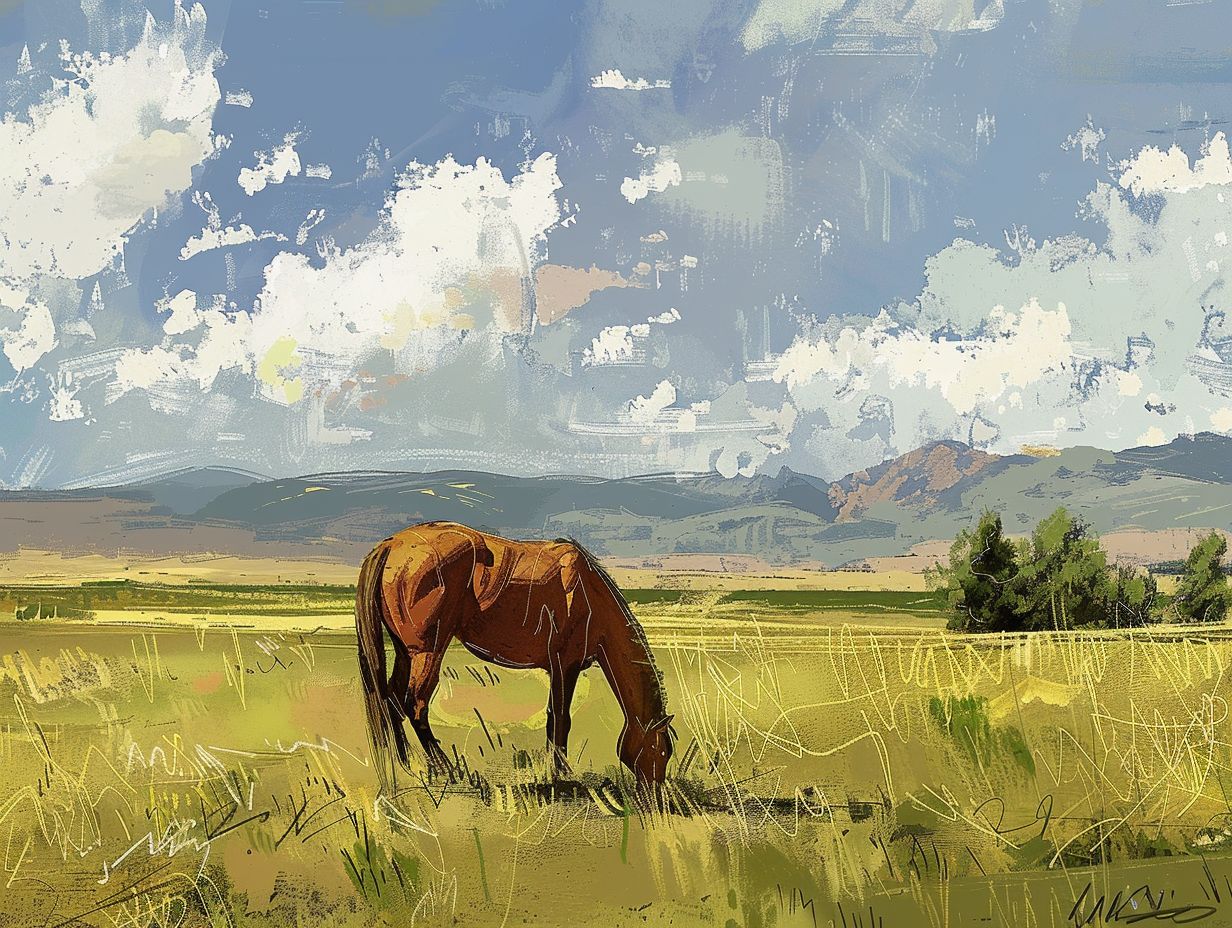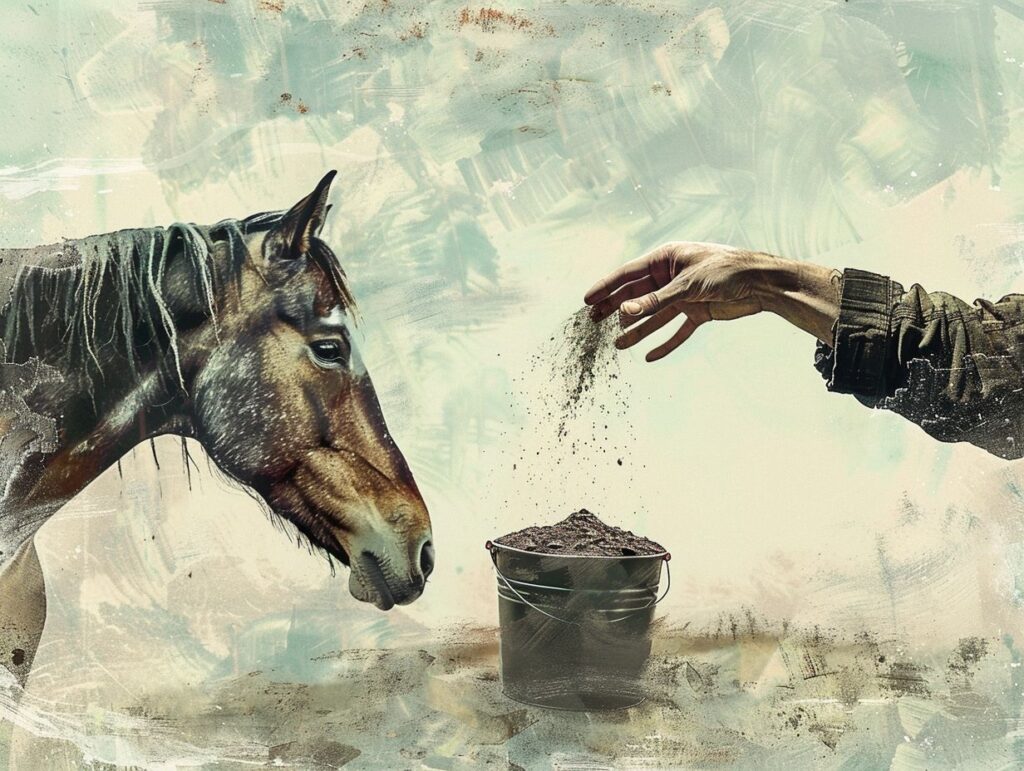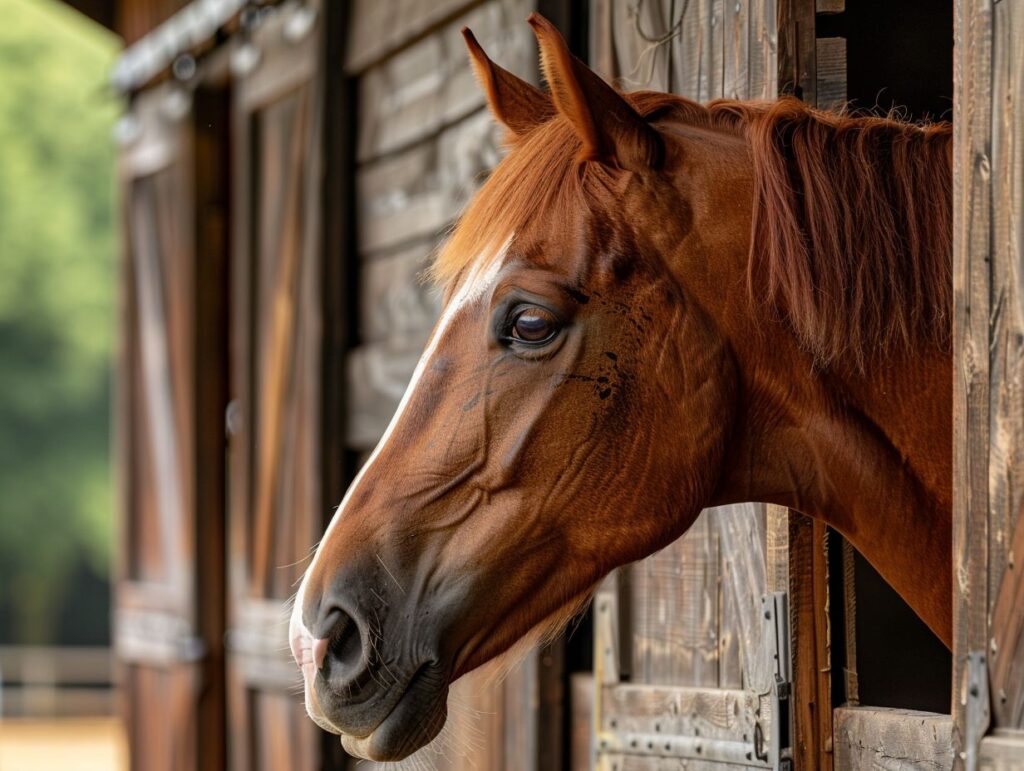Curious about Devil’s Claw and its benefits for your horses? This article will cover all you need to know about this natural supplement. From alleviating pain and inflammation to enhancing joint health, Devil’s Claw provides a variety of benefits for your equine companions. Discover the optimal administration methods and dosages, along with potential side effects and risks to be mindful of. Before administering Devil’s Claw to your horse, it is crucial to consult with a veterinarian and take into account any possible interactions with other medications.
Understanding Devil’s Claw

To understand Devil’s Claw, you need to explore its benefits and effects on horses, which have made it a popular natural remedy in equine care. This herbal medicine is renowned for its anti-inflammatory properties, offering pain relief and promoting joint health in horses.
Originating from Southern Africa, Devil’s Claw has been utilized for centuries by indigenous tribes due to its medicinal properties. The tuberous roots of this plant contain harpagosides, which demonstrate potent anti-inflammatory effects. When horses suffer from joint pain or inflammation, Devil’s Claw can help alleviate discomfort and enhance mobility.
Many horse owners choose Devil’s Claw as a natural supplement because of its gentle yet efficacious approach in managing various musculoskeletal issues, without the potential side effects linked to conventional medications.
What is Devil’s Claw?
Devil’s Claw is a plant extract commonly used in traditional medicine for its therapeutic benefits in equine health. It is particularly renowned for its effectiveness in managing arthritis and musculoskeletal conditions in horses.
Originating from the arid regions of Southern Africa, Devil’s Claw has a long history of being employed by indigenous tribes to alleviate various ailments in both humans and animals. The plant’s tuberous roots contain bioactive compounds such as harpagoside, which possess anti-inflammatory and pain-relieving properties.
When administered to horses suffering from arthritis, Devil’s Claw extract has shown promising results in reducing inflammation and boosting joint mobility. Equine veterinarians often recommend incorporating Devil’s Claw supplements in the treatment regimen for horses dealing with chronic joint issues.
The Benefits of Devil’s Claw for Horses
Devil’s Claw offers a myriad of benefits for horses, acting as a natural supplement with potent anti-inflammatory properties. Its effectiveness in pain management makes it a valuable asset for equine athletes, providing essential support for mobility and serving as a reliable aid in maintaining joint health.
When considering the use of Devil’s Claw for horses, you will find it particularly significant in the realm of equine sports due to its ability to aid in reducing inflammation and discomfort, thereby improving their performance and overall well-being. By promoting joint health and alleviating pain, this natural supplement contributes to the longevity and agility of equine athletes, enabling them to move with ease and grace. The anti-inflammatory properties of Devil’s Claw play a pivotal role in managing various conditions that may affect horses, ensuring they can continue to excel in their athletic endeavors.
Relieving Pain and Inflammation
Devil’s Claw is highly effective in relieving pain and inflammation in horses, making it an ideal solution for joint stiffness. Its analgesic properties play a vital role in equine sports medicine, providing much-needed relief to horses experiencing discomfort.
Devil’s Claw has been found to contain harpagosides, compounds known for their anti-inflammatory effects. By reducing inflammation in the joints, Devil’s Claw helps improve mobility and flexibility in horses, making it particularly beneficial for equine athletes. This natural remedy is sought after by many veterinarians and horse owners seeking a holistic approach to managing pain in horses, especially in the context of intensive training and competition.
Improving Joint Health

Devil’s Claw plays a significant role in improving joint health in horses, making it a valuable component in equine therapy. Its ability to provide essential joint support is highly regarded by equine specialists and is often incorporated into equine rehabilitation programs.
This natural supplement is known for its anti-inflammatory properties, which can help alleviate pain and stiffness in your horse’s joints. By reducing inflammation, Devil’s Claw aids in enhancing mobility and flexibility, key aspects in the recovery and rehabilitation process. Equine therapists have witnessed the positive impact of Devil’s Claw firsthand, with many including it in their treatment protocols. Its effectiveness in supporting joint health has gained widespread recognition within the equine community, emphasizing the importance of holistic approaches to improving the well-being of horses.
How to Use Devil’s Claw for Horses
When using Devil’s Claw for your horses, you need to consider dosage and suitable supplements, as it serves as an alternative treatment in equine nutrition. Proper administration and monitoring are crucial to maximize the benefits of its therapeutic use.
When you incorporate Devil’s Claw into your horse’s diet, it is important to carefully determine the appropriate dosage based on the horse’s weight and individual needs. Supplements containing Devil’s Claw are available in various forms such as powders, pellets, or liquid extracts, offering flexibility in administration. Besides its role in equine nutrition, Devil’s Claw is well-known for its anti-inflammatory properties, making it a popular choice for managing joint discomfort in horses. Regular monitoring of your horse’s response to the supplement is essential to ensure effectiveness and adjust the dosage if necessary.
Administration Methods and Dosages
When considering the administration methods and dosages of Devil’s Claw in equine care, a comprehensive approach based on equine pharmacology and research findings is necessary. Understanding the appropriate dosage and administration techniques is vital for ensuring the efficacy and safety of Devil’s Claw in equine treatment.
It is crucial to customize the dosage of Devil’s Claw to meet the specific requirements of the horse, taking into consideration factors such as weight, age, and overall health status. This herbal supplement can be orally administered, typically mixed with feed or water, to ensure proper intake. It is advisable to initiate with a lower dose and then adjust gradually, as needed, while closely monitoring the horse’s response. Consistency in administering the supplement at regular intervals is pivotal for maintaining its therapeutic effects. Seeking guidance from a veterinarian or equine pharmacology expert can offer valuable insights into optimizing the utilization of Devil’s Claw for the well-being of the horse.
Potential Side Effects and Risks
When considering the use of Devil’s Claw in the equine industry, it is important to be mindful of the potential side effects and risks associated with this herbal remedy. As a plant-based treatment, understanding how it may impact joint function and its reception within the equine community is essential.
One of the main concerns regarding Devil’s Claw in equines is its potential to induce gastrointestinal issues such as diarrhea and colic. Additionally, given its anti-inflammatory properties, there is a risk that it could mask underlying pain, potentially leading to excessive exertion during activities. To mitigate these risks, it is crucial to carefully administer the correct dosage and closely monitor the horse for any adverse reactions.
Given that Devil’s Claw is not subject to the same regulatory oversight as pharmaceuticals, ensuring proper quality control and sourcing is imperative to guarantee its effectiveness and safety when used in equines.
Monitoring for Adverse Reactions

Monitoring for adverse reactions to Devil’s Claw in horses is a critical aspect of equine care that necessitates vigilance from equine specialists and referencing relevant equine research. Safeguarding musculoskeletal health through meticulous monitoring ensures the well-being of horses using this herbal supplement.
Equine specialists play a pivotal role in observing any potential adverse effects that Devil’s Claw may have on the horses, leveraging their expertise to promptly detect and address such issues. By staying informed about the latest equine research findings, these professionals are better positioned to deliver optimal care for the musculoskeletal health of horses.
Regular monitoring not only facilitates early identification of any negative reactions but also bolsters the overall health and performance of the equines, emphasizing the significance of comprehensive observation and preventive measures in equine well-being.
Considerations Before Using Devil’s Claw for Horses
Before incorporating Devil’s Claw into equine care, seeking veterinary advice is crucial, especially for horses dealing with arthritis. Understanding the role of Devil’s Claw in equine sports medicine and its status as a traditional remedy necessitates insight into equine anatomy and specific considerations.
Veterinarians play a pivotal role in assessing the suitability of Devil’s Claw for individual horses, considering factors such as age, health conditions, and potential interactions with other medications. In cases of arthritis, a professional evaluation can determine the appropriate dosage and administration methods to ensure optimal results without compromising the horse’s well-being. Experts in equine sports medicine stress the significance of accurate diagnosis and treatment strategies, underscoring the importance of well-considered choices and regular monitoring when integrating natural remedies like Devil’s Claw into equine care routines.
Consulting with a Veterinarian
When utilizing Devil’s Claw in equine wellness plans, it is essential to consult with a veterinarian to ensure proper herbal treatment. Expert guidance in equine science can provide valuable insights into the optimal use of Devil’s Claw for joint support and overall equine health.
Veterinary advice is crucial in determining the appropriate dosage and administration of Devil’s Claw, taking into account individual equine factors. By working collaboratively with a veterinarian, horse owners can mitigate potential risks and optimize the benefits of this herbal supplement.
Considering the delicate balance between joint health and overall well-being in horses, seeking professional input significantly enhances the effectiveness of equine health management strategies. Making informed decisions guided by veterinary expertise allows owners to promote longevity and performance in their equine companions.
Interactions with Other Medications
Understanding potential interactions between Devil’s Claw and other medications is crucial in equine pharmacology, especially when incorporating alternative medicine. Considering its role in equine rehabilitation and pain management underscores the importance of awareness regarding possible drug interactions.
Devil’s Claw, a popular herbal supplement in equine care, has been used for centuries due to its anti-inflammatory properties. When combined with conventional medications, there is a risk of adverse effects or reduced efficacy. This highlights the need for veterinary professionals to closely monitor medication regimens for horses undergoing rehabilitation.
Integrating alternative medicine like Devil’s Claw into equine pharmacology requires a cautious approach to ensure the well-being and health of the animals. Vigilance in understanding these interactions can lead to more effective pain management strategies in equine practices.
Frequently Asked Questions

What Does Devils Claw Do For Horses?
Devils Claw is an herb that has been used for centuries to alleviate pain and inflammation in horses.
How does Devils Claw work for horses?
Devils Claw contains compounds that act as natural anti-inflammatories, reducing pain and swelling in horses.
Can Devils Claw be used as a supplement for horses?
Yes, Devils Claw can be used as a supplement for horses to support joint health and manage pain and inflammation.
What conditions can Devils Claw help horses with?
Devils Claw has been known to help horses with conditions such as arthritis, tendonitis, and other inflammatory disorders.
Are there any side effects of using Devils Claw for horses?
While Devils Claw is generally safe for horses, some may experience digestive upset or allergic reactions. It is important to consult with a veterinarian before administering it to your horse.
How should Devils Claw be administered to horses?
Devils Claw can be given to horses in the form of a powder, capsule, or liquid extract. It is best to follow the recommended dosage on the product label or consult with a veterinarian for proper administration.


